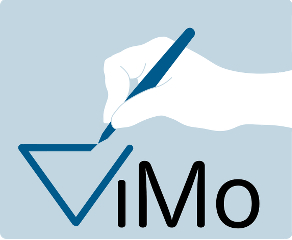Research Project ViMo 2 (Duration: from 2024)

Funding Organisation
German Research Foundation [Deutsche Forschungsgemeinschaft]Abstract
Empirical findings on the effectiveness of drawing instructions to promote students’ modelling competencies in the field of geometry are mixed and indicate that drawing-specific strategy knowledge (strategic knowledge about drawing, SKD) plays an important role. Results from the first phase of funding (“ViMo 1”) have confirmed that declarative SKD (i.e., knowledge about the characteristics of a good drawing) is a necessary but not sufficient precondition for producing drawings with a high level of accuracy and for finding a solution to a modeling problem. The overarching goal of the follow-up project “ViMo 2” is therefore to investigate what role procedural SKD (i.e., knowledge of how to construct and use a drawing in the modeling process) plays in the effective use of drawings and in modeling performance by students in the field of geometry. In addition to procedural SKD, we are also taking into account declarative SKD as well as cognitive, metacognitive, and motivational factors. Within the framework of the follow-up project, theoretical, empirical, and practice-relevant findings can be expected in the following areas: First, the project will provide findings on the potential of strategy training for promoting mathematical modelling competencies in the field of geometry. Second, the project will contribute to research on self-generated drawings. Compared with the first phase of funding, the recording and analysis of eye movements promises additional insights into the mechanisms behind instruction in drawing at the level of strategy execution. The use of EMME (Eye Movement Modeling Examples) also promises insights into the potential of this innovative form of instruction for mathematics and science learning. Third, the project will contribute to learning strategy research. We expect to confirm and expand relationships postulated in Borkowski et al.’s (2000) theoretical model by distinguishing between declarative and procedural parts of SKD. Fourth, regarding practical implications, the learning environment that we are developing in the project can be used in mathematics instruction.
Research Project ViMo (Duration: 2015-2022)

Funding Organisation
German Research Foundation [Deutsche Forschungsgemeinschaft]Abstract
Modelling competency is important for students' current and future lives. Empirical research in this domain has shown that students' ability to solve real-word problems is poor and that stu-dents usually do not achieve a sufficient level of modelling competency in the regular class-room (Blum, 2011; Blum et al., 2007). One instructional element that can improve students' modelling competency is drawing a diagram to represent a modelling problem. However, re-sults on the effects of drawings on students' mathematics' performance have not been con-sistent (De Bock et al., 2003). One reason for these inconsistent results may be that previous studies have not paid sufficient attention to students' knowledge and quality of drawings. In the proposed project (Visualizations while solving modelling problems, ViMo), we will investigate the interplay between different types of drawings and students' strategy knowledge, quality of drawings, motivational predispositions, and performance.
Publications
Journal Articles (peer-reviewed)
Schukajlow, S., Blomberg, J., Rellensmann, J., & Leopold, C. (2021). Do emotions and prior performance facilitate the use of the learner-generated drawing strategy? Effects of enjoyment, anxiety, and intramathematical performance on the use of the drawing strategy and modelling performance. Contemporary Educational Psychology, 65, 101967. https://doi.org/10.1016/j.cedpsych.2021.101967 Preprint
Rellensmann, J., Schukajlow, S., & Leopold, C. (2017). Make a drawing. Effects of strategic knowledge, drawing accuracy, and type of drawing on students' mathematical modelling performance. Educational Studies in Mathematics, 95, 53-78
Book Chapters and Conference Proceedings (peer-reviewed)
Teacher Journals
Rellensmann, J., Schukajlow, S., & Blomberg, J. (2021). Was ist eine gute Skizze? [What is a good drawing?] mathematik lehren, 124, 24-26